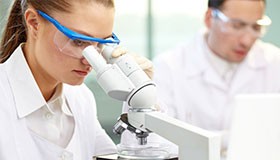Department Introduction
Introduction of Neonatology Department
1.About Us
Neonatology department, established in 1993, is one of the largest neonatal departments among obstetrics and gynecology hospitals in China. We have 130 medical staff members, including 30 pediatricians and 100 nurses, who are well trained and capable of monitoring, evaluating, diagnosing and treating critical conditions.
We offer three levels of neonatal service as follows:
Neonatal Intensive Care Unit 1 (NICU1) has 30 intensive care beds with advanced life support systems for various critical conditions of neonates, including acute respiratory failure, severe multi-organ dysfunction, severe sepsis/septic shock, early management for very low birth weight infants (VLBW), and extremely low birth weight infants (ELBW)/extremely premature infants (EPI).
Neonatal Intensive Care Unit 2 (NICU2) has 50 beds with basic life support systems for the management of moderate preterm infants (gestational age 32-34w, or birth weight of 1500-1800g) and for the continuing care of VLBW, ELBW/EPI from NICU1.
Special Care Nursery (SCN) has 50 beds with basic life support systems for the management of late preterm and term infants with various high risk factors or diseases, such as low Apgar score, neonatal hyperbilirubinemia, infection, feeding problems, etc.
2. Treatment & Service
We provide 24-hour care with the latest technology and monitoring equipment made for tiny babies. And we offer efficient prevention and treatment of a broad range of neonatal diseases or imbalances. All of our staff members are dedicated to helping babies to have the best chance of surviving and growing up normally.
Neonatal resuscitation: We perform neonatal resuscitation according to AAP/AHA guideline more than 100 times every month in delivery or operating rooms. The overall success rate of neonatal resuscitation is more than 99%.
Intensive care for VLBW, ELBW/EPI.Every year, we treat more than 350 infants with very low birth weight. Since 2000, the overall survival rate of VLBW is above 95%, the survival rate of ELBW/EPI is about 80%. The lowest gestational age treated and survived was 24 weeks.
Promotion of breast milk feeding: We have been promoting breast milk feeding for decades. We not only support breastfeeding by mothers, but also encourage the use of donated human milk (DHM) to premature infants. For very premature infants with gestational age below 32 weeks or birth weight below 1500 grams, we use exclusive breast milk or DHM until corrected gestational age of 34 week. Up to now, the breast milk feeding rate in hospitalized VLBWI is more than 90%.
Developmental care service: We supply developmental care for premature infants to reduce the amount of stress that a premature infant is exposed to, including positioning babies in comfortable, flexed postures, clustering nursing care to provide longer periods of sleep, providing a quiet, darkened environment, and encouraging parents visit and kangaroo care.
3. Milestone of Expertise
Our department has an enthusiastic and cooperative medical team, aiming at reducing neonatal morbidity and mortality, and improving long-term outcome of sick infants especially VLBW, ELBW/EPI. Milestones include:
- In 1988, we were the first to introduce and launche AAP/AHA’s Neonatal Resuscitation Program (NRP) in Zhejiang Province.Since then, we have been training more than 10000 medical staff, and playing a significant role in decreasing neonatal mortality from birth asphyxia in Zhejiang Province.
- In 2003, we successfully saved an extremely premature infant with gestational age of 25w, which was the lowest gestation survived in China at that time. In 2007, we treated and cured an extremely low birth weight infant of 550g, which was the smallest baby survived in Zhejiang province.
- In 2015, we were the first to designe and develope a computerized nutrition ordering system, which is plugged in HIS and able to finish parenteral and enteral nutrition ordering within 30 to 40 seconds. The automated prescribing and real-time feedback to prescribers on further suggestions or medication errors make nutrition ordering not only time-saving but also more precise and optimized, and medication errors totally prevented.
- In 2016, we were the first to set up Donated Breast Milk Bank in Zhejiang province, which is located in and operated by our department, and played a significant role in improving both short-term and long-term outcomes of premature infants.
- In 2012, we were the first to conduct a pilot study of less invasive surfactant administration (LISA) in China. In 2018, we sponsored a nation-wide multi-center clinical trial of LISA in China.
4. Education and Training
Post-graduate training and specialist nurse training program in our department provide a broad range of experience in neonatal medicine and nursing, with the aim ofassuring the graduate physicians and specialist nurses are well prepared to provide primary preventive care for normal newborns as well as advanced neonatal intensive care for critically ill infants.
Training Base
- National neonatal specialist training base collaborative unit.
- The leading unit of the national federation of neonatal medicine.
- Maternal and infant specialist nurse training base of Zhejiang Province.
5. Research
We are also dedicated to both intense neonatal care and many aspects of clinical research.
Our primary areas of research include improvement of neonatal resuscitation skills, integrated prevention of extra-uterine growth retardation, computerized nutritional management of VLBWI, less invasive surfactant administration, benefits and promotion of breast-milk feeding for preterm infants.
6. Location & Contact
NICU1: 3rd Floor of building 3
Phone:0571-89992350
NICU2: 3rd Floor of building 3
Phone:0571-89992352
SCN:3rd Floor ofbuilding 2
Phone:0571-89992333








